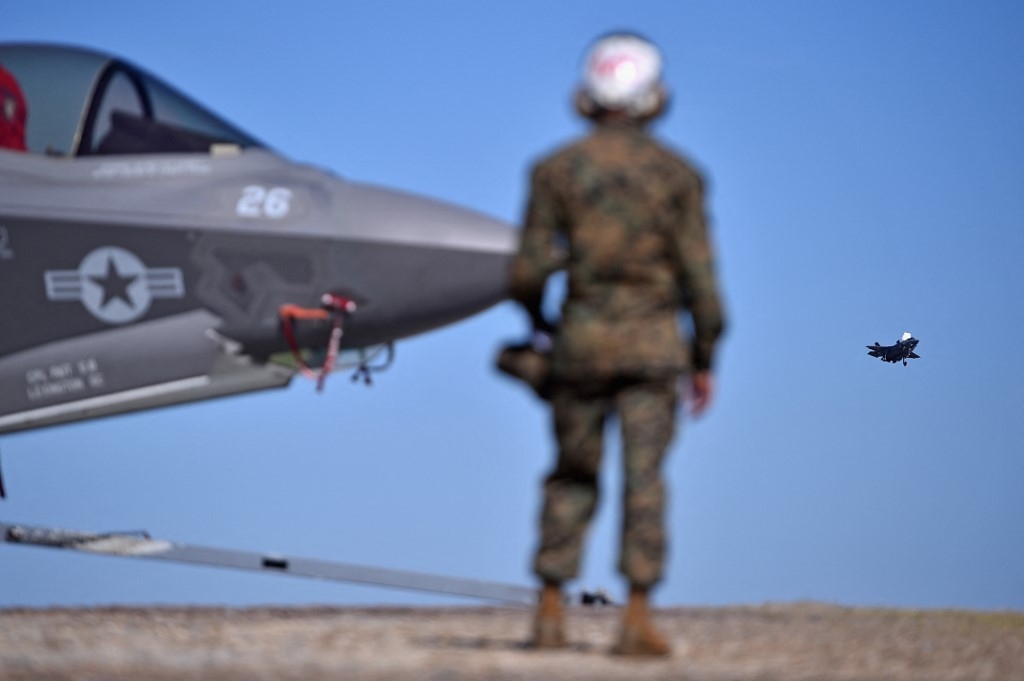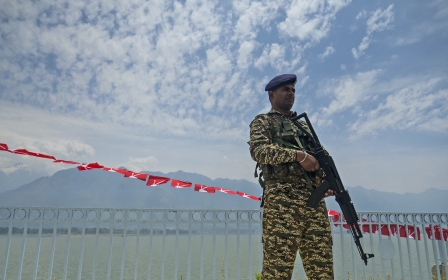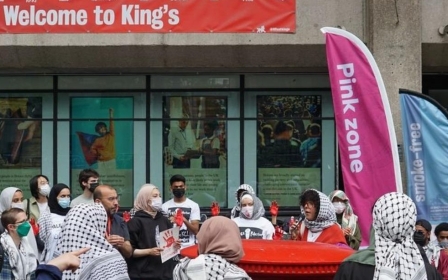UK government denies report of 'secret arms embargo' on Israel

The UK government has denied a report that it has implemented a "secret arms embargo" on Israel, saying there has been "no change" in its approach to export licences to its ally.
The Daily Mail reported late on Friday that civil servants had frozen all applications for new arms export licences to Israel, pending a review ordered by Foreign Secretary David Lammy.
The report also said that defence trade body representatives had been told no new request for licences would proceed until the government makes a decision following the review.
But a spokesperson for the Department for Business and Trade told Middle East Eye on Monday that it continues "to review export licence applications on a case-by-case basis against the Strategic Export Licensing Criteria".
New MEE newsletter: Jerusalem Dispatch
Sign up to get the latest insights and analysis on Israel-Palestine, alongside Turkey Unpacked and other MEE newsletters
"We are reviewing the advice regarding exports to Israel and no decision has been made."
MEE understands that there have been no formal changes in licensing protocol since the new Labour government took power last month.
The previous government revealed in data released in May that no licences for the export of UK-made weapons or military equipment had been revoked or refused following the Hamas-led attacks on 7 October.
The data released also showed that more than 100 UK export licences for the sale of weapons, military equipment and other controlled items to Israel had been approved since the attacks.
Later on Monday, the Jewish Chronicle reported that the government had begun to suspend arms export licences to Israel, citing an individual who, upon seeking permission, was said to have received a notice in response stating "suspended pending policy review".
When asked for clarification, a business department representative reiterated comments shared earlier in the day with MEE, saying: "There has been no change to our approach to export licences to Israel".
Concerns over delays
Lammy has said he commissioned new legal advice into Israel's compliance with international humanitarian law in its war on Gaza on his first day in office in early July.
Sources told MEE and other outlets that the government planned to introduce restrictions to arms sales on the final day of parliament before summer recess last week.
But no announcements were made, with reports in the Times and Guardian suggesting the decision was delayed as the government identified which UK-made weapons may have been used in Israel's war on Gaza and those used defensively, a distinction Lammy has recently drawn.
The final day of parliament also fell days after a rocket attack killed 12 children in the Israeli-occupied Golan Heights, triggering fears of a wider conflict between Israel and Hezbollah in a development Lammy called "very concerning".
These concerns will only have increased following the assassinations last week of Hamas leader Ismail Haniyeh in Tehran and senior Hezbollah military commander Fuad Shukur.
However, NGOs and campaigners tell MEE they remain concerned the new government is intentionally delaying decision making while Israel continues to bombard Gaza and scupper any chance of a ceasefire.
"We are extremely concerned that that the new government is repeating past mistakes by applying double standards in upholding international law," said Nicola Banks, advocacy lead at the UK-based Action for Humanity.
Banks said, if it hadn't done so already, the UK should immediately suspend arms transfer to Israel as the assessment of Israel's compliance was conducted "as the bare minimum".
Anna Stavrianakis, director of research and strategy at UK-based Shadow World Investigations and professor of international relations at the University of Sussex, said the distinction the government is apparently seeking to draw between offensive and defensive weapons "isn't actually a thing".
"The rules around arms exports are based on a risk assessment and the potential use of any type of weapons on a case-by-case basis," she said in a video on X.
"This really looks like the government trying to find wiggle room to allow exports to continue."
'This really looks like the government trying to find wiggle room to allow exports to continue'
- Anna Stavrianakis, Shadow World Investigations
Yasmine Ahmed, UK director of Human Rights Watch, said: ‘There is no question that there is a clear risk that UK military equipment transferred might be used to facilitate or commit serious violations of international law by Israel, including attacks that amount to war crimes."
"In failing to suspend the licensing of equipment the UK is at risk not only of breaching domestic law but also failing to take action to prevent genocide."
The Public and Commercial Services Union (PCS) which represents British civil servants has requested a meeting with the Cabinet Office over the war in Gaza and its implication for government employees.
Earlier this year, a former aid civil servant reported in Declassified that he had been told that as many as 300 staff in the Foreign Office had formally raised concerns of Britain's complicity and support for Israel's war on Gaza.
PCS has asked to "negotiate a satisfactory resolution" on issues including the legality of the work being undertaken in the civil service and members' obligations under the civil service code.
“PCS will always defend our members’ interests; and it is not in their interests to undertake work that potentially contravenes the law," PCS general secretary Fran Heathcote said.
Asked if the requested meeting would be held and if a date had been set, a Cabinet Office spokeperson told MEE: "The Cabinet Office, as usual, continues to have regular discussions with civil service unions, including PCS."
Middle East Eye delivers independent and unrivalled coverage and analysis of the Middle East, North Africa and beyond. To learn more about republishing this content and the associated fees, please fill out this form. More about MEE can be found here.





